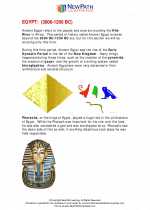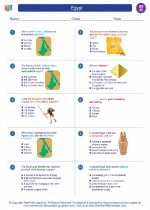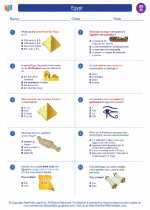Delta - Study Guide
A delta is a landform that forms at the mouth of a river, where the river deposits sediment as it flows into a larger body of water, such as a sea or ocean. Deltas are typically triangular or fan-shaped and are characterized by their rich, fertile soil and diverse ecosystems.
Formation of Deltas
Deltas are formed through the process of sediment deposition. As a river flows into a larger body of water, it loses its energy and begins to deposit the sediment it has been carrying. Over time, these deposits build up and form the characteristic delta landform.
Types of Deltas
There are three main types of deltas: arcuate, bird's foot, and estuarine. Arcuate deltas have a triangular shape and are formed by strong ocean currents, while bird's foot deltas have a protruding "toe" shape and are formed by a combination of river and ocean currents. Estuarine deltas form in areas with minimal wave and tidal energy, leading to a more irregular shape.
Importance of Deltas
Deltas are important for several reasons. They provide fertile soil for agriculture, support diverse ecosystems, and serve as natural barriers that protect inland areas from coastal erosion and storm surges. Additionally, deltas are often home to human settlements and important economic activities.
Study Questions
- What is a delta and how is it formed?
- Describe the three main types of deltas.
- Explain the importance of deltas in the natural environment and for human activities.




